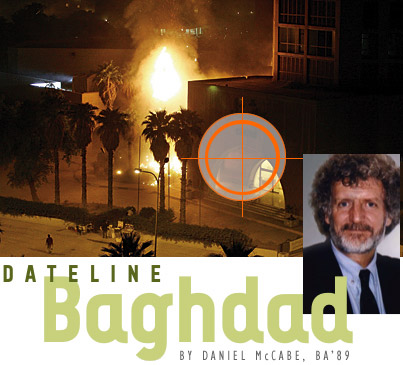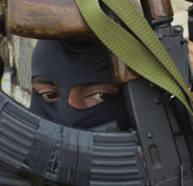
John Burns is adamant about one thing. He is not a hero. Yet given the way he keeps risking his life to report from war-torn regions or to shed light on the brutish practices of dictators and despots, he sure acts like one. Burns is the chief foreign correspondent for the New York Times and the head of the newspaper's bureau in Baghdad, where he has been kidnapped by Iraqi security and seen friends and colleagues die.
Iraq is not his first dangerous posting. He filed stories from China during the Cultural Revolution, from apartheid-era South Africa, from the former Yugoslavia during the siege of Sarajevo and from Afghanistan during the rise of the Taliban. In the process, he has earned print journalism's highest honours -- two Pulitzer Prizes and two George Polk Awards.
"He's been everywhere, seen everything, and writes about it all with unmatched eloquence, sweep and authority," says Susan Chira, foreign editor for the New York Times.
In a recent interview with the Columbia Journalism Review, Tucker Carlson, the combative conservative co-host of CNN's Crossfire, singled out Burns for praise.
"Anyone who can bang out magazine-level prose in a war zone day after day on deadline is a hero of mine. He's obviously physically courageous. And he seems to write exactly what he thinks is true, no matter where he is, which is what I admire most."
Still, Burns is quick to dismiss any talk of heroism.

A masked supporter of rebel Shiite cleric Muqtada al-Sadr brandishes his weapon.
CPimages.ca
"I don't believe at all in the concept of the journalist as hero," Burns declares. "In a war, there are people who act heroically -- the combatants on both sides, who put themselves at risk, and the civilians caught in the middle.
"We are here by our own choice," he says of reporters. "We get paid to do this and our career prospects are certainly improved as a result of working on the biggest stories of our time." He notes that his newspaper spares no expense in trying to keep its staffers safe in Baghdad. They work and live in a compound protected by thick walls and patrolled by armed guards. When they venture out to do interviews, they travel in armoured vehicles accompanied by professional bodyguards.
"The residents here live with much greater risk than we do. They have no flak jackets, no blast walls, no armed guards. Above all, they have no choice. We can leave whenever we like."
Burns admits that some of his reasons for staying are selfish.
"There is adventure in this. There is an undeniable rush of adrenaline in living life on the edge. No one can deny that. The blood pumps through your veins that much faster."
And he is still fiercely competitive about how he approaches his work.
"There is the question of the front page," Burns relates. The Times employs hundreds of reporters around the world and each day only a handful will see their stories published on the front page of the planet's most famous newspaper. Burns wants to be one of them. "It's a lot easier to do if you're in Baghdad than if you're in Brussels."
But Burns is also in Baghdad for nobler motives. After decades of covering violent clashes and unsavory rulers throughout the world, he believes he is specially equipped to cover the ongoing turmoil in Iraq. "I'm the right man in the right place."


